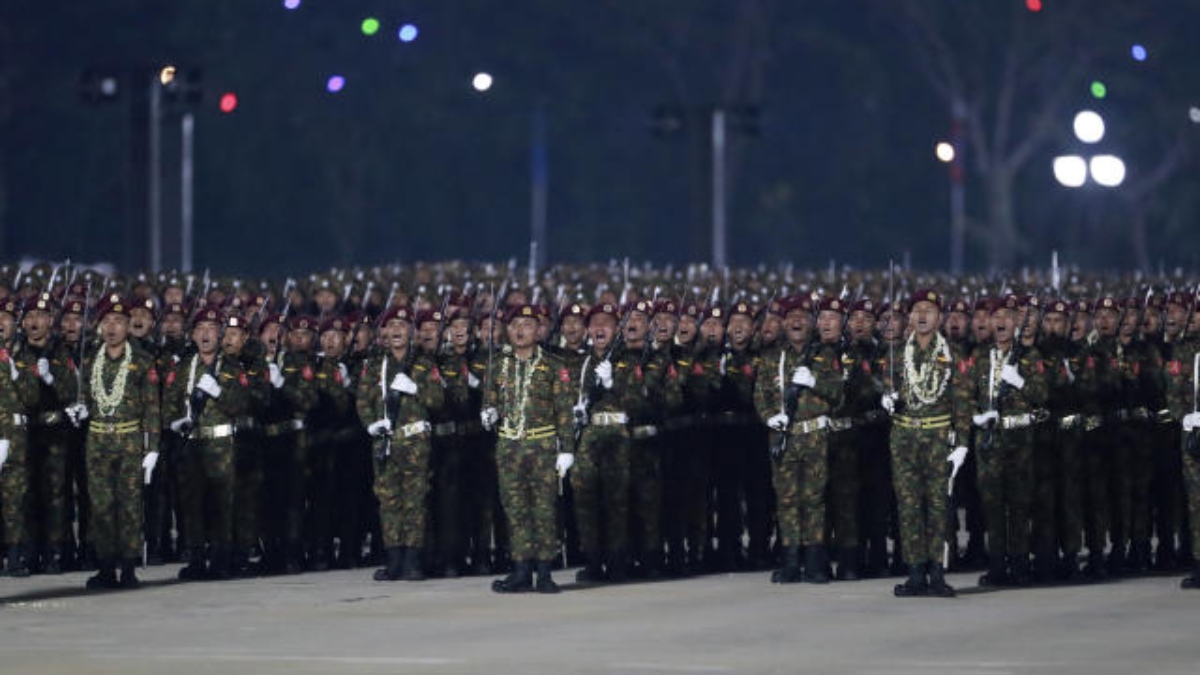Myanmar’s military government, known for its suppression of free speech, has implemented a new cybersecurity law granting extensive control over information flow. The law, detailed in state-run newspapers on Friday adds to the military’s arsenal of tools to stifle dissent and restrict online freedoms.
Eaelier, the military regime relied on broadly worded national security laws to penalize online content and frequently blocked websites and apps to prevent access to information it deemed undesirable. Advanced surveillance and censorship technologies, reportedly sourced from allies China and Russia, have bolstered these efforts.
The newly enacted law effective since Wednesday introduces sweeping measures aimed at regulating communication channels and targeting services like virtual private networks (VPNs) that allow users to bypass censorship and access restricted content.
VPNs connect users to their desired sites through third-party computers, effectively masking from internet service providers and snooping governments what content they are accessing.
Many otherAsiannations also have cybersecurity laws with restrictive aspects that free speech advocates charge are meant to silence dissenting voices.
The military government that took power in Myanmar in February 2021 after ousting the elected government of Aung San Suu Kyi has made several previous attempts to throttle traffic on the internet, especially in the months immediately after their takeover.
Resistance to the takeover relied heavily on social media, especially Facebook, to organize street protests.
As nonviolent resistance escalated into armed struggle and other independent media were shut down or forced underground, there was an expansion of online content about and by the f orces resisting military rule. The Telegram chat and social networking app is particularly active.
Impact Shorts
More ShortsThe new law calls for sanctions including warnings, fines, suspensions and blacklisting for digital platform service providers who fail to comply with rules to prevent, remove, and cease circulation of “disinformation” and “rumors” that might cause hate or destroy unity or disrupt stability. Posting any information that might violate existing law, and incite violence, also is subject to penalties.
The law also requires digital platform service providers to keep the names and other personal data and records of their users for up to three years, and to disclose them to the authorities if asked.
It says the authorities can investigate, control, block and shut down digital platform services and electronic information if necessary for the public good and state’s security, and that action will also be taken against Myanmar citizens abroad who violate any of the law’s provisions.
It also says those who establish a VPN or provide VPN services without obtaining the permission of the ministry shall be imprisoned for one month to six months or a fine of 1 million kyats ($476) to 10 million kyats ($4,760).
Any equipment used in violating provisions of the law is subject to seizure.
Users of most free VPN services already found themselves unable to connect in May last year, and there were reports that people stopped by security forces whose phones were found to have VPN apps were fined and detained.
Operators of Myanmar’s top telecom companies and internet service providers told The Associated Press at the time that access to Facebook, Instagram, X, WhatsApp and VPN services was banned nationwide at the end of May on the order of the Transport and Communications Ministry.
The new law also says anyone who builds an online gambling system without obtaining official permission shall be imprisoned for six months to one year or a fine of 5 million kyats ($2,380) to 20 million kyats ($9,520) or both. Online gambling has been connected with organized crime in Myanmar and other Southeast Asia countries, sometimes linked to online scam centers that are staffed by victims of human trafficking.
With inputs from agencies.
)